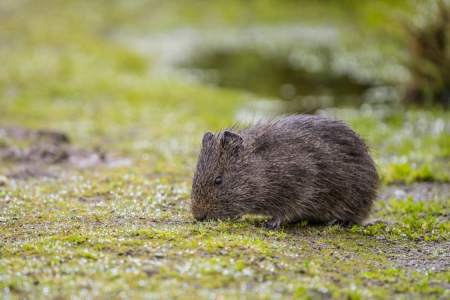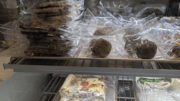When shelter pets become prison meals—what this grotesque case teaches us about oversight
By
Maan
- Replies 0
Content warning: This article contains details about alleged animal cruelty that some readers may find distressing.
What began as a trusted rehabilitation program for prisoners has now been overshadowed by shocking allegations.
A prison work-release scheme, once hailed as one of Western Australia’s most successful initiatives, is at the centre of a disturbing scandal.
Accusations have emerged that inmates at Wooroloo Prison Farm consumed the very animals they were meant to care for.
The controversy erupted after guards reportedly discovered guinea pig carcasses and meat stored in a fridge at the prison farm, located 45 kilometres from Perth.
Authorities believe the animals—disowned pets given refuge at the facility—were slaughtered before the meat was smuggled back into the prison, cooked, and shared among inmates.
Guinea pig meat is a common dish in parts of South America and Asia, often described as having a gamey flavour and a richer taste than rabbit.
However, the alleged actions have prompted outrage, with officials describing the claims as ‘disturbing’.
Corrective Services Commissioner Brad Royce confirmed that the prisoners involved had been subjected to lengthy interrogation.
‘All Section 95 activities from Wooroloo in the community are suspended pending the outcome of investigations,’ he shared.
‘It’s particularly concerning given the Section 95 community work program is an integral part of the Department’s rehabilitation and reintegration efforts, demonstrating the valuable contributions prisoners can make to Western Australian communities.’
The Section 95 program had long been viewed as a model for helping inmates rebuild their lives while giving back to the community.
Its suspension marks a significant setback for both the prison’s rehabilitation efforts and the animal shelter that had previously benefited from the prisoners’ labour.
As the investigation continues, questions remain over how such activities could have taken place under the program’s watch.
The outcome will determine whether the work-release scheme can regain the trust it once held in the eyes of the public.
Stories about the mistreatment of animals can be difficult to stomach, but they’re not the only unsettling incidents making headlines.
Just as the Wooroloo prison case has sparked outrage, another recent report exposes a scene that left many feeling disgusted.
This time, the problem wasn’t in a prison—but in the kitchen of a popular diner.
Read more: Disgusting footage reveals infestation at popular home diner—see footage before your next visit!

How can a program built on trust and rehabilitation recover after such disturbing allegations?
What began as a trusted rehabilitation program for prisoners has now been overshadowed by shocking allegations.
A prison work-release scheme, once hailed as one of Western Australia’s most successful initiatives, is at the centre of a disturbing scandal.
Accusations have emerged that inmates at Wooroloo Prison Farm consumed the very animals they were meant to care for.
The controversy erupted after guards reportedly discovered guinea pig carcasses and meat stored in a fridge at the prison farm, located 45 kilometres from Perth.
Authorities believe the animals—disowned pets given refuge at the facility—were slaughtered before the meat was smuggled back into the prison, cooked, and shared among inmates.
Guinea pig meat is a common dish in parts of South America and Asia, often described as having a gamey flavour and a richer taste than rabbit.
However, the alleged actions have prompted outrage, with officials describing the claims as ‘disturbing’.
Corrective Services Commissioner Brad Royce confirmed that the prisoners involved had been subjected to lengthy interrogation.
‘All Section 95 activities from Wooroloo in the community are suspended pending the outcome of investigations,’ he shared.
‘It’s particularly concerning given the Section 95 community work program is an integral part of the Department’s rehabilitation and reintegration efforts, demonstrating the valuable contributions prisoners can make to Western Australian communities.’
The Section 95 program had long been viewed as a model for helping inmates rebuild their lives while giving back to the community.
Its suspension marks a significant setback for both the prison’s rehabilitation efforts and the animal shelter that had previously benefited from the prisoners’ labour.
As the investigation continues, questions remain over how such activities could have taken place under the program’s watch.
The outcome will determine whether the work-release scheme can regain the trust it once held in the eyes of the public.
Stories about the mistreatment of animals can be difficult to stomach, but they’re not the only unsettling incidents making headlines.
Just as the Wooroloo prison case has sparked outrage, another recent report exposes a scene that left many feeling disgusted.
This time, the problem wasn’t in a prison—but in the kitchen of a popular diner.
Read more: Disgusting footage reveals infestation at popular home diner—see footage before your next visit!
Key Takeaways
- Guards allegedly found guinea pig carcasses and meat in a fridge at Wooroloo Prison Farm.
- The animals were believed to be disowned pets from an associated animal shelter.
- Those accused have been interrogated and suspended from the work-release program.
- The Section 95 program, once highly regarded, is now under full suspension pending investigation.
How can a program built on trust and rehabilitation recover after such disturbing allegations?








